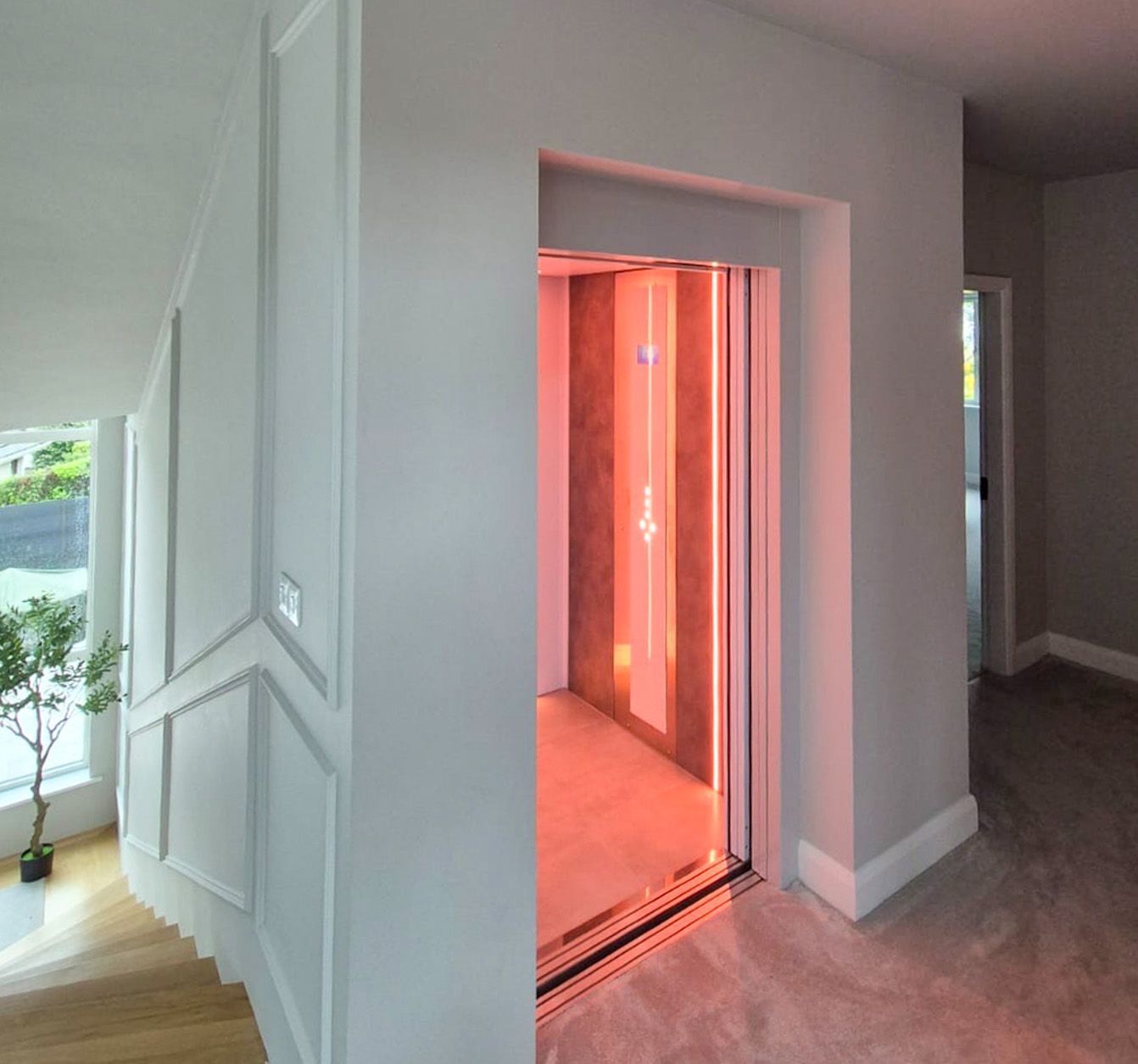
MENU
CONTACT US

HOME LIFTS I NOVEMBER 2025
Whether you’re installing a home lift for accessibility or adapting a building for compliance, cost is often a major concern. The good news? In Ireland, funding and grant schemes are available to make it more achievable than ever. In this article, we break down what’s available, how to apply and what you’ll need to qualify.

1. Mobility Aids Grant Scheme
Aimed at smaller works like stairlifts and low-cost platform lifts.
Amount Available: Up to €8,000
Eligibility: Annual household income under €37,500
Covers: Internal/external lifts.
Administered By: Local Authority (County/City Council)
To explore the Mobility aids Grant Scheme further, you may like to read our Lift Funding & Grants Guide - it’s a helpful starting point for understanding the scheme as well as the government's published information here.
2. Housing Adaptation Grant for People with a Disability
Amount Available: The effective maximum grant of €40,000 to cover up to 100% of the cost of works, may be available to applicants with gross household incomes of up to €37,500 per annum, tapering to 30% for applicants with gross household incomes of between €62,501 to €75,000 per annum.
Eligibility: Household income under €60,000 (scaled)
Covers: Through-floor lifts, enclosed vertical lifts, related structural works.
Administered By: Local Authority
When applying for lift installation grants, it's essential to understand what expenses are typically covered. These grants often include the supply and installation of the lift itself, ensuring that the core equipment and fitting are fully funded. Additionally, they may cover essential electrical or structural work required to support the lift system safely.
Costs associated with planning permissions, safety compliance and building regulations are also commonly included. In some cases, VAT and professional fees, such as those for architects or engineers, may be partially or fully covered, depending on the specific grant scheme.
Before you apply for a lift installation grant, make sure you have all the necessary documentation ready. You’ll need a completed grant application form along with a medical report or a recommendation from an occupational therapist to demonstrate the need for the lift.
Most grant providers will also require proof of income to assess eligibility. A written quote from a reputable lift provider (like us!) is essential to outline the costs involved. Finally, don’t forget to include proof of property ownership or tenancy, as this confirms your legal right to make modifications to the home.
Need Help with Your Application? Get in touch with us today - we’ll guide you through the grant application process and provide a detailed, itemised quote you can submit with confidence. Let’s make your home more accessible, together.
To increase your chances of securing a lift installation grant, it’s important to approach the process strategically. First, apply as early as possible - funding is often limited and many grants are reviewed and processed on a quarterly basis, so timing matters.
Ensure you submit all required documentation in one go to prevent unnecessary delays or requests for missing information. It’s also a smart move to consult your local council housing officer, who can offer valuable guidance throughout the application.
Lastly, be sure to include a detailed, itemised quote from a trusted lift specialist, such as Premier, to clearly outline the scope and cost of the proposed work.

Q: Can I combine these grants with other financial aid?
A: Usually no - you can only apply for one housing adaptation grant at a time.
Q: Does the grant cover VAT?
A: In many cases, yes - and you may also qualify for a VAT refund scheme separately.
Q: How long does the process take?
A: Allow 6 - 10 weeks from submission to approval, though this can vary by council.
Premier Lifts Ireland has worked with dozens of homeowners and property managers to secure grant funding and deliver affordable, compliant solutions. Talk with us today.